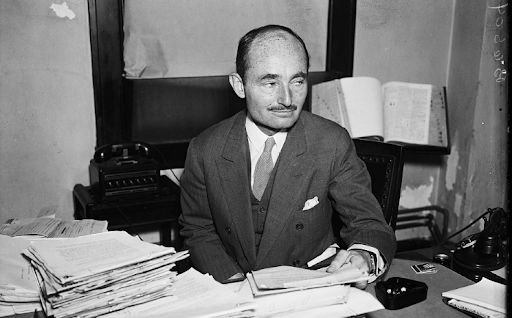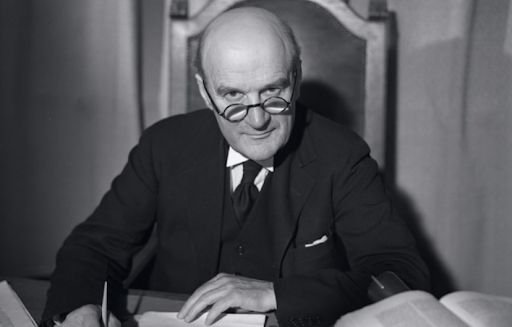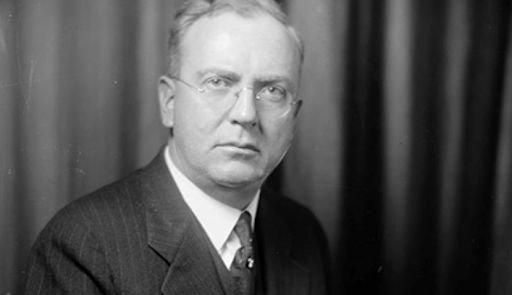Francis Beverley Biddle, born on May 9, 1886, and died on October 4, 1968, was a judge, lawyer, politician, and even screenwriter who played an important role in the Nuremberg Trial, where several Nazi politicians and leaders were convicted for crimes against humanity under charges of “crimes against peace, war crimes, crimes against humanity, and mass murder.”
Biddle was one of the judges who represented the United States in the trial. The US was one of the countries that pushed to raise charges against the Nazis and condemn them for their actions against humanity. He was part of the Court of Appeals of his country, an intermediate level with the Judicial Court, one of the highest entities in each nation’s judicial system.
Harry Truman, one of the former presidents of the United States, played a key role in Beverley Biddle’s professional career. In between, Franklin Roosevelt was president of the United States until his death in 1945 and had appointed him as Attorney General of the US, a position he resigned from when Truman took office and got involved in the Nuremberg case, during World War II.
After his education in Paris, Francis followed in the footsteps of his father, who was a distinguished law professor. Biddle’s next step was Harvard University, where he graduated in Humanities and Law.
Biddle’s rising career
Although it may sound paradoxical, Biddle was present in both World Wars. In the first, between 1914 and 1918, the Frenchman was in the US Army—and this has a logic. After studying at Harvard, located in Massachusetts, the lawyer settled in the country, specifically in Philadelphia.
For more than twenty years, Biddle dedicated himself to practicing law in Philadelphia. Oliver Wendell Holmes, a former Supreme Court Justice, recruited the young Frenchman as his private secretary. That was his first contact with the highest judicial power.
From 1933 to 1945, Franklin Roosevelt served as president of the United States. And what does this have to do with Biddle? The Frenchman played an important role from Roosevelt’s arrival, who appointed him president of the National Labor Relations Board until 1939, when he took office in the US Court of Appeals as a judge. That great adventure lasted only one year, since he was then appointed “Solicitor General of the United States.”
It’s a high-level position within the US Department of Justice. Beverley Biddle accepted the challenge and defended the country in the Supreme Court, a place he had become familiar with as a private secretary. These years were turbulent for both the US and the world at large, with World War II in the background. Biddle’s roles were as surprising as they were brief, although his career kept rising.
In 1941, Francis became Attorney General of the United States, a temporary role to oversee the Department of Justice. This position ended in an unexpected way for him and the country after the death of Roosevelt, which immediately shifted the presidency.
Harry Truman took over and became the new head of state. With the arrival of this new public figure, Francis’s future also turned 180°. In 1945, the year World War II ended, the pressure from France, the United Kingdom, and the Soviet Union led to a general agreement among countries to hold a trial for the crimes committed by the Nazis. And Truman made the decision to appoint Biddle to lead the case.
Nuremberg Trial
Francis Beverley Biddle was one of the judges representing the United States during the trial, which lasted several months and ended with the conviction of more than 20 Nazi politicians involved in crimes of war, peace, and murder. What distinguished the US during this phase was the opening of several more cases related to the murder of millions of Jews. These new trials convicted certain Nazis who were more directly involved.
The US prosecution played a central role during the trial, presenting audiovisual content that narrated the events in concentration camps and moved those present. Biddle and his team even obtained the testimony of a commander who confirmed the killing of more than 80,000 people.
Francis Beverley Biddle held many positions, with the particularity that he always went from less to more. Brief but accurate and effective roles that led him to sit in one of the most important trials in world history. A case that changed the course of criminal law and dismantled millions of issues related to Nazi crimes.






